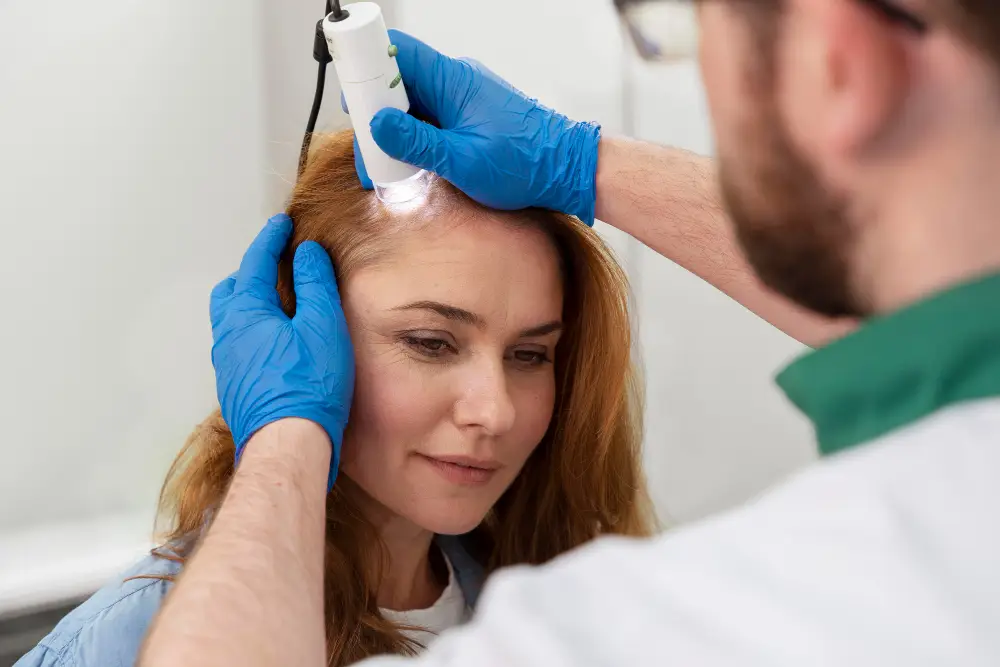
Stem Cells & Melanoma: Exploring Emerging Pathways in Pereira, Colombia
Key Takeaways
- Understanding melanoma involves recognizing the role of cancer stem cells in its persistence and recurrence, a key area of current scientific investigation.
- While not a standard therapy, research into targeting cancer stem cells in melanoma and using regenerative approaches as adjuncts to other therapies represents a frontier in oncology.
- Colombia, and specifically Pereira, is developing as a center for patient-centric care, offering a supportive environment for individuals exploring emerging medical pathways.
- Navigating complex medical information requires reliable, source-verified education to make informed decisions about potential investigational avenues.
- The team at Regencord in Pereira provides comprehensive support, from initial case review to logistical coordination, ensuring a structured and empathetic patient journey.
Introduction: Navigating the Complexities of Melanoma
A diagnosis of melanoma, the most serious form of skin cancer, can bring a cascade of emotions and questions. For many, the initial focus is on established protocols, but as science progresses, the desire to explore all potential avenues for well-being becomes paramount. This guide is designed to shed light on a specific area of scientific interest: the role of cancer stem cells in melanoma and the emerging research pathways being explored in the broader field of regenerative medicine.
At Regencord in Pereira, Colombia, our role is to empower individuals with comprehensive, source-verified information, facilitating an ethical understanding of these complex scientific frontiers. We recognize that for individuals exploring advanced options, clarity and support are not just helpful—they are essential. This article will help you understand the current scientific landscape, the unique advantages of considering care pathways in Pereira, and how our team supports your journey to informed decision-making.
The Stakes & Critical Implications of Melanoma
Melanoma is characterized by the uncontrolled growth of pigment-producing cells. While often curable if detected early, advanced melanoma presents significant challenges. Understanding the disease’s biological intricacies is crucial for those considering all potential pathways.
The Role of Cancer Stem Cells in Melanoma
Recent scientific inquiry, highlighted by research indexed on PubMed and discussed by the U.S. National Cancer Institute (NIH), points to the presence of “cancer stem cells” (CSCs) within tumors. These cells are thought to possess unique properties:
- Self-Renewal: The ability to divide and produce more cancer stem cells.
- Differentiation: The capacity to generate various types of cells found in the tumor, contributing to its heterogeneity.
- Resistance: They are often more resistant to conventional therapies, potentially leading to recurrence after initial treatment.
- Metastasis: Implicated in the spread of cancer to distant sites.
The concept of cancer stem cell targeting is a significant focus in oncology research. Strategies aiming to eliminate these elusive cells are being investigated as potential ways to improve outcomes for many cancers, including melanoma. This research often explores how to modulate the tumor microenvironment – the complex ecosystem surrounding the tumor – to make it less hospitable for CSCs and enhance the effectiveness of other approaches, such as immunotherapy adjuncts. While these are active areas of research, it’s vital to frame them within the context of scientific inquiry and ongoing clinical trials (as evidenced on ClinicalTrials.gov), not as established or guaranteed treatments.
The Conventional Approach in Colombia & The Evolving Landscape
In Colombia, as in many nations, the approach to melanoma typically follows established guidelines from the Colombian Ministry of Health and international best practices. This often involves surgical removal of the tumor, and for more advanced stages, therapies such as targeted therapy, chemotherapy, radiation therapy, and increasingly, immunotherapy.
Immunotherapy, for instance, has revolutionized the management of advanced melanoma by harnessing the body’s own immune system to fight cancer, with the U.S. Food and Drug Administration (FDA) approving several agents in this class. While these advancements offer significant hope, the search for even more effective and personalized strategies continues.
It’s within this evolving landscape that discussions around emerging regenerative pathways and cancer stem cell research gain prominence. While not yet part of standard protocols for melanoma, understanding these areas allows individuals to be fully informed about the scientific frontiers. Colombia’s robust healthcare infrastructure, overseen by entities like the Ministry of Health and regulated by INVIMA, ensures a framework for ethical medical practice and the potential for participating in investigational protocols, where appropriate.
The Pereira, Colombia Advantage: A Hub for Patient-Centric Care
For patients considering advanced medical pathways, the choice of location extends beyond the medical facility itself. Pereira, Colombia, presents a compelling confluence of factors that enhance the patient journey, particularly for those from Colombia or abroad seeking a supportive environment.
Robust Healthcare Infrastructure & Regulatory Oversight
Colombia has consistently been recognized for its strong healthcare system within Latin America. Institutions in cities like Pereira operate under the strict regulations of the Colombian Ministry of Health and INVIMA, ensuring adherence to national and international standards. This provides a foundational layer of legitimacy and quality for any medical exploration, including investigational or emerging approaches.
A Holistic Patient Journey: Beyond the Procedure
Navigating complex medical decisions from abroad often brings a unique blend of hope and apprehension. Patients frequently express relief when they discover that the international patient journey, when meticulously managed, transforms from a daunting prospect into a structured, supportive experience, far beyond just the medical procedure itself. It’s about seamless logistics and peace of mind. The Regencord team in Pereira understands these nuances, providing comprehensive coordination that simplifies travel, accommodation, and communication. This focus on the holistic experience alleviates logistical anxieties, allowing individuals to concentrate on their well-being.
A Culturally Rich and Welcoming Environment
The quiet commitment of healthcare professionals in destinations like Pereira, often working at the forefront of emerging science, can be a revelation for patients. They seek not just medical evaluation, but a holistic environment where compassion for the human experience is woven into every interaction, often reflecting a deep-seated cultural value of care that prioritizes the individual’s overall well-being alongside scientific inquiry. Pereira itself, nestled in the coffee region, offers a tranquil yet vibrant setting that can contribute positively to a patient’s overall experience, providing a calming backdrop for reflection and recovery.
Access to Emerging Understandings
Colombia’s engagement with global medical advancements means that healthcare providers are attuned to evolving scientific discussions, including those around cancer stem cell targeting and regenerative approaches. While any discussion around “stem cell melanoma treatment” must be carefully framed within research and investigational contexts, Pereira offers a locale where such scientific explorations can be thoughtfully considered and evaluated by a dedicated team, always prioritizing patient safety and ethical guidelines.
Your Melanoma Journey Navigator: A Practical Resource
To help you organize your thoughts and prepare for informed discussions about melanoma and potential advanced pathways, we’ve developed the “Melanoma Journey Navigator.” This practical tool is designed to empower you by structuring your information-gathering process.
What the Melanoma Journey Navigator Helps You Do:
- Clarify Your Current Understanding: Prompts you to outline what you already know about your melanoma diagnosis and previous treatments.
- Identify Key Questions: Helps you articulate specific questions about cancer stem cells, regenerative approaches, and your individual case.
- Document Your Priorities: Guides you in thinking about your personal goals and concerns regarding any medical pathway.
- Logistical Checklist: Provides a step-by-step guide for considering international care, from medical record preparation to travel considerations.
- Conversation Starter: Serves as a structured document to bring to your confidential case review with the Regencord team.
This resource transforms the perception of a complex process into a manageable, supported pathway. It ensures that when you engage with our team, you come prepared, and we can address your unique situation with precision and empathy.
Our Regenerative Philosophy & Approach: Focus on Understanding
At Regencord, our philosophy is rooted in education, transparency, and patient empowerment. When discussing complex and emerging areas like “stem cell melanoma treatment,” it’s crucial to distinguish between established therapies and investigational pathways. Our focus is not on asserting unverified clinical superiority or guaranteeing outcomes, but on providing clarity within the scientific landscape.
Our Approach to Emerging Pathways:
- Ethical Framework: All discussions and potential evaluations are conducted within a strict ethical framework, prioritizing patient safety and well-being above all else.
- Evidence-Based Inquiry: We emphasize understanding the scientific foundation for any investigational approach, drawing from peer-reviewed journals and reputable institutions like the NIH.
- Personalized Candidacy Review: We believe that every individual’s case is unique. Our team facilitates a thorough review of your medical history to determine if you might be a candidate for any specific, ethically-governed investigational pathways related to regenerative medicine or cancer stem cell research in the context of melanoma.
- Education First: Our primary goal is to provide comprehensive education, allowing you to make an informed decision based on a clear understanding of the science, the potential (but not guaranteed) benefits, and the associated considerations.
- Collaborative Environment: We foster a collaborative environment, working alongside you to explore all available information and consider your options thoughtfully.
We believe that true empowerment comes from knowledge. Our team at Regencord in Pereira is dedicated to being your trusted resource as you navigate these challenging and hopeful frontiers of medical science.
Overcoming Common Hesitations: Why Seeking Clarity is a Strategic Advantage
Exploring advanced medical options, especially those at the forefront of science like cancer stem cell research for melanoma, often comes with a set of common concerns. Our goal is to address these directly, providing clarity and building trust.
Hesitation 1: “Is receiving care in Colombia for such an advanced topic safe or legitimate?”
Counter-Argument: This is a valid question, and one we encourage. Colombia has a well-regarded healthcare system, with institutions adhering to national standards set by the Colombian Ministry of Health and regulated by INVIMA. Many facilities boast modern infrastructure and highly trained medical professionals. The legitimacy of any approach, particularly in emerging fields, lies in its scientific foundation and ethical oversight. Our team ensures that any pathways considered are grounded in verifiable research and adhere to strict ethical guidelines, prioritizing patient safety and transparency. It’s about understanding a well-regulated system focused on patient care.
Hesitation 2: “The information online about stem cells and cancer is confusing. How can I make an informed decision without being overwhelmed or misled?”
Counter-Argument: You’re right to be cautious. The internet can be a vast, often contradictory source of information. This is precisely why we prioritize source-verified education. Our objective is to cut through the noise by providing concise, accurate, and ethically framed information, drawing only from reputable sources like the NIH and peer-reviewed journals. Furthermore, our “Melanoma Journey Navigator” tool provides a structured way to organize your questions and concerns, transforming a deluge of information into a manageable and actionable plan. We offer a confidential, personalized case review to address your specific situation with accurate, up-to-date scientific context.
Hesitation 3: “What about the logistics and practicalities? Seeking care, especially for an advanced pathway, sounds incredibly complicated.”
Counter-Argument: It’s natural to feel that navigating complex medical journeys might be overwhelming. This is where the Regencord team provides invaluable support. We act as your dedicated patient advocate, assisting with every step of the journey—from coordinating the confidential case review and securing necessary appointments to providing guidance on travel arrangements if you are outside Pereira. Our goal is to transform what might seem like a daunting process into a streamlined, supported experience, allowing you to focus on your health with peace of mind. We simplify the pathway, managing the complexities on your behalf.
Hesitation 4: “Is this just false hope? I’ve been through so much already.”
Counter-Argument: We deeply understand the emotional toll of a melanoma diagnosis and the desire for effective options. Our approach is never to offer false hope or guarantee outcomes, especially when discussing emerging scientific pathways. Instead, we offer clarity and a strategic advantage through informed decision-making. We focus on providing a thorough, ethical evaluation of your individual candidacy against the backdrop of current scientific understanding, helping you understand what is known, what is still being researched, and what realistically might be possible within a carefully considered framework. Our commitment is to transparency and respectful guidance, ensuring every discussion is grounded in reality and empathy.
Glossary of Key Terms
- Melanoma: A serious type of skin cancer that develops in cells that produce melanin, the pigment that gives skin its color.
- Cancer Stem Cells (CSCs): A subpopulation of cancer cells within a tumor that possess characteristics associated with normal stem cells, such as self-renewal and differentiation, believed to drive tumor growth and recurrence.
- Immunotherapy: A type of cancer treatment that helps your immune system fight cancer.
- Tumor Microenvironment: The local environment of a tumor, including surrounding blood vessels, immune cells, fibroblasts, signaling molecules, and the extracellular matrix, all of which can influence tumor growth and response to therapy.
- Regenerative Medicine Pathways: A broad field focused on developing new methods to repair, replace, or regenerate damaged or diseased cells, tissues, or organs, including investigational applications in oncology.
- INVIMA: Instituto Nacional de Vigilancia de Medicamentos y Alimentos (National Food and Drug Surveillance Institute of Colombia), the national regulatory agency for health products in Colombia.
- Patient Journey: The entire experience of a patient through the healthcare system, encompassing all interactions and touchpoints from initial awareness to post-care.
Frequently Asked Questions About Melanoma & Emerging Pathways
What is the current scientific understanding of stem cells in melanoma?
Research indicates that cancer stem cells may play a critical role in melanoma’s progression, resistance to therapy, and recurrence. Scientists are actively investigating ways to identify and target these cells, often exploring cancer stem cell targeting strategies and how to modulate the tumor microenvironment. This is an area of ongoing scientific inquiry, not yet a standard therapeutic approach for melanoma.
Is “stem cell melanoma treatment” approved as a standard therapy?
No, “stem cell melanoma treatment” is not a standard, FDA-approved, or widely adopted treatment for melanoma. While there is significant research into the role of stem cells in cancer and various regenerative approaches, these are largely investigational pathways or emerging understandings. Any consideration of such avenues should occur within rigorous ethical guidelines and be thoroughly evaluated for individual candidacy.
How does immunotherapy relate to cancer stem cell research in melanoma?
Immunotherapy has transformed melanoma care, but not all patients respond, and some develop resistance. Researchers are exploring how targeting cancer stem cells or modulating the tumor microenvironment might enhance the effectiveness of immunotherapy as an adjunct or in combination strategies. This represents a promising area of scientific investigation, aiming to improve long-term outcomes.
What support does Regencord offer for patients from Colombia considering these pathways?
The team at Regencord in Pereira, Colombia, offers comprehensive patient advocacy and logistical support. This includes facilitating a confidential case review, providing source-verified educational resources like the “Melanoma Journey Navigator,” coordinating appointments, and assisting with travel logistics if you’re not local to Pereira. Our aim is to provide clarity and ease the complexities of exploring advanced medical options.
How do I know if I’m a candidate for an investigational pathway related to stem cell research in melanoma?
Determining candidacy involves a thorough review of your complete medical history, including diagnosis, previous treatments, and overall health. This process is complex and requires detailed discussion with qualified medical professionals. The Regencord team facilitates this initial, confidential case review to help you understand if such an exploration aligns with current scientific and ethical considerations for your specific situation.
Discover if you are a candidate for the regenerative medicine pathways available through the team at Regencord in Pereira, Colombia.



